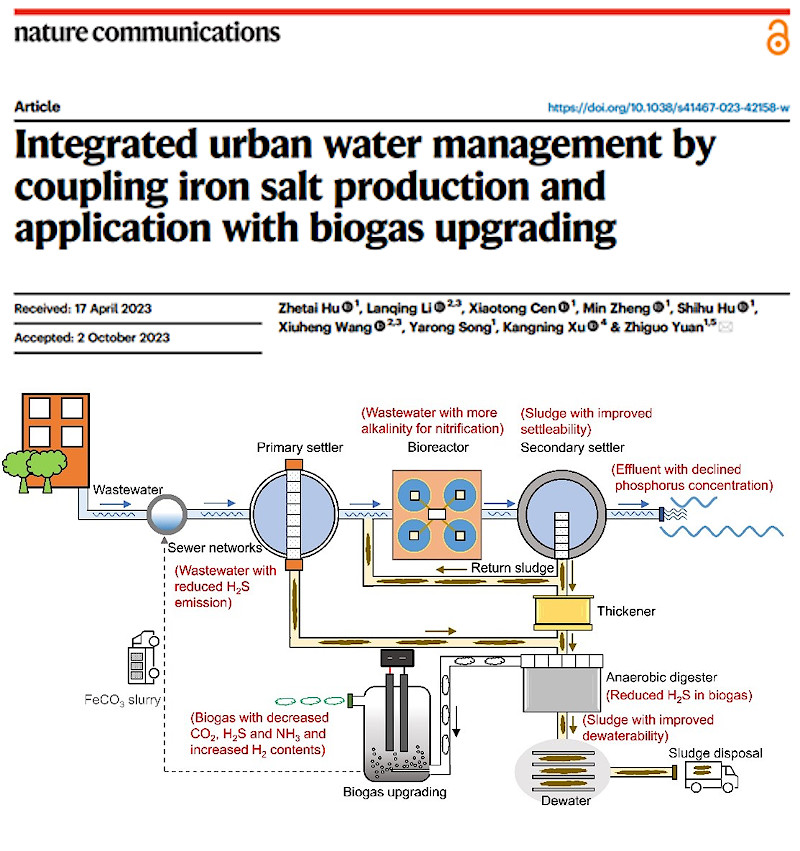An Innovative Strategy for Integrated Urban Water Management Published in Nature Communications
Prof. Zhiguo Yuan, Chair Professor of Urban Water Management and a Global STEM Professor at the School of Energy and Environment, CityU, has recently published his latest ground-breaking research work in Nature Communications. The paper, titled "Integrated urban water management by coupling iron salt production and application with biogas upgrading", presents an effective technological solution for integrated management of urban water systems, resulting in significant system-wide benefits. The solution innovatively connects bioenergy recovery from wastewater with infrastructure protection, pollutant removal, and sludge reduction.

Iron salts find extensive applications within an urban wastewater system, offering a multitude of benefits, including hydrogen sulfide control in sewers, phosphate removal in wastewater treatment, and sludge reduction in sludge treatment and disposal. The global demand for iron salts by the water industry was 6.4 billion USD in 2018, and projected to reach 8.5 billion USD by 2023. However, the current supply chain is associated with high costs, environmental hazards, and susceptible to interruptions, Prof. Yuan noted.
“Seemingly unconnected, biogas is produced in many wastewater treatment plants as a product of resource recovery. Its utility is often constrained by its high CO2 content. Consequently, the biogas is primarily used for low-value applications such as power production. Its high-value use, for example as a transport fuel or for injection into the natural gas grids, require the removal of CO2”, emphasized Prof. Yuan.
In this groundbreaking study, Prof Yuan’s team developed an innovative electrochemical system simultaneously removes CO2 from biogas and produces FeCO3. The team further demonstrated that the FeCO3 thus produced can replace the commercial iron salts for urban water management, with comparable or even superior performance.
In addition to substantial economic benefits, life cycle assessment reveals significant benefits to the atmospheric, aquatic, and terrestrial environments, human health, and resource consumption, in comparison to the current iron salts supply chain. "This process empowers water utilities to establish a self-sustaining and more resilient supply chain to fulfill their iron salt requirements at reduced economic and environmental costs while simultaneously facilitating the recovery of high-quality bioenergy". Prof. Yuan commented.
The research involved collaboration with The University of Queensland, Harbin Institute of Technology, and Beijing Forestry University.